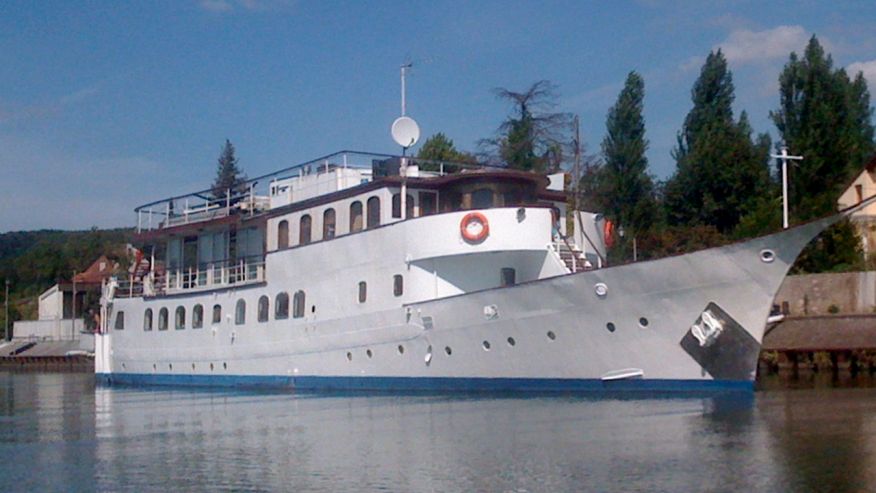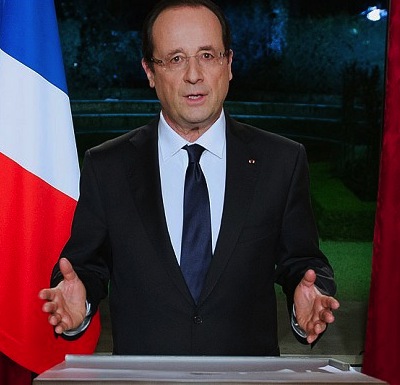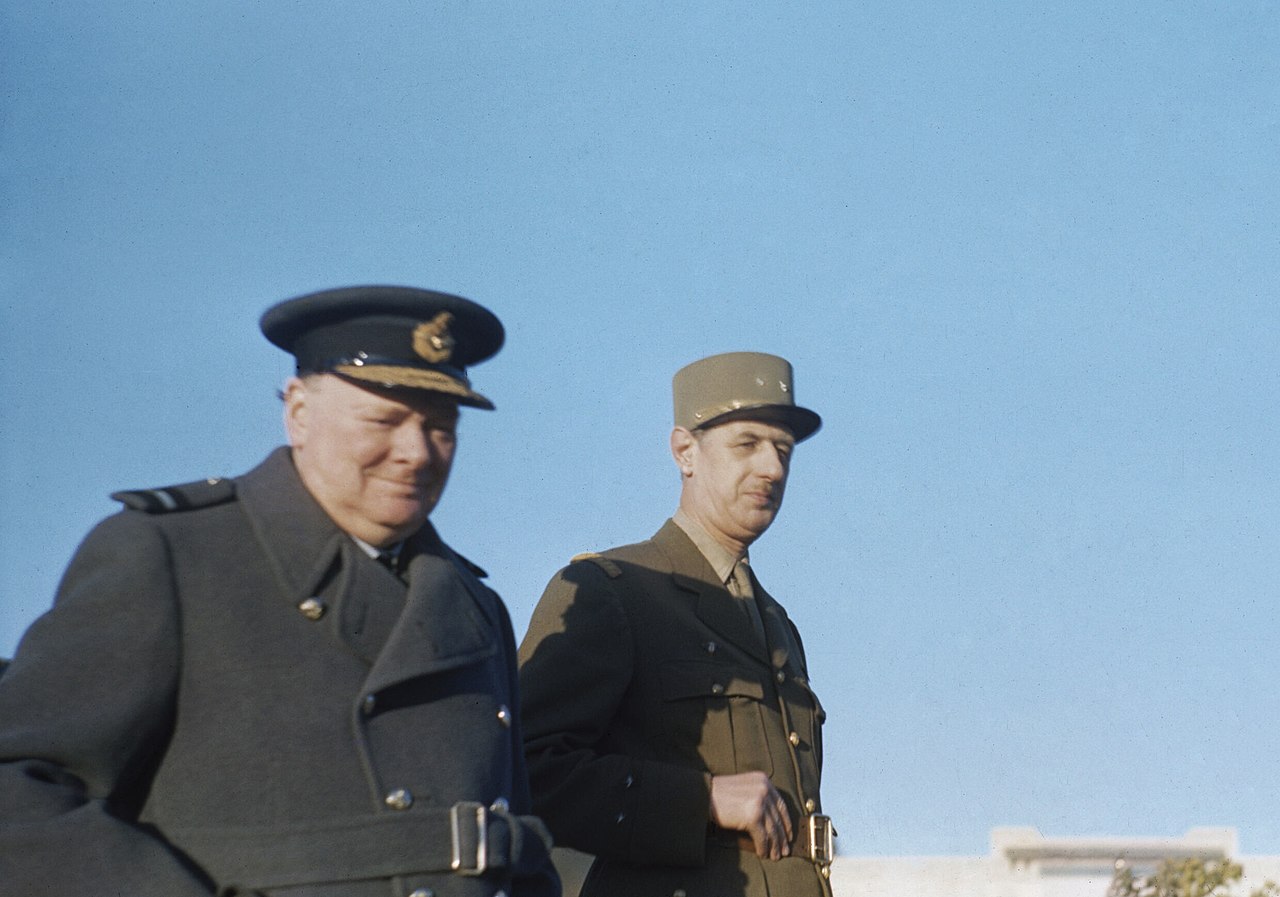Category: Quotations
Britain’s Leave Debate: Who’s Churchill? Who’s Stalin?
The campaign to Leave is heating up. Take Grassroots Out, a “combined operation” supporting Brexit—the campaign for Great Britain to exit the European Union. G-O fielded a broad spectrum of speakers in London February 19th. Along with UK Independence Party leader Nigel Farage were Conservative Sir William Cash, Labour’s Kate Hoey, economist Ruth Lea, and a London cab driver.
The most unexpected Leave speaker was the far-left former Labour MP and head of the socialist Respect Party. Mr. George Galloway was immediately queried about his new colleagues.
“We are not pals,” Galloway replied.…
Churchill on Trial: Washington, 1953
In early 1953, Winston Churchill was placed on trial by his peers, with President Truman the presiding judge, for complicity in the use of atomic bombs. To anyone who may write to say that he and Truman were making light of events causing thousands of deaths, the answer is twofold: 1) How do you know they were making light?; and 2) This is in answer to a historical query. Sources: Clark Clifford, recollection, to Richard Langworth, 1988. Margaret Truman, “After the Presidency,” in Life, 1 December 1972, 69-70. Also recorded in her book, Harry S. Truman.
__________________
Margaret Truman wrote: “During our last weeks in the White House, Prime Minister Churchill arrived for a visit.…
Last Try to Avoid Hell, 1914
“Saving the Nations from Hell”: The “Kingly Conference,” 1914 (Excerpt)
(Read more at Hillsdale College Churchill Project)
Churchill’s faith in personal diplomacy—solving intractable problems by meetings at the highest level—was famously expressed during World War II.
Less widely known is Churchill’s 1914 proposal for a conference of heads of state (including, it seems, French President Raymond Poincaré) in an effort to head-off World War I. The scheme failed, but not for Churchill’s lack of trying.
There is little on Churchill’s “kingly conference” in the literature. There is no reference in Churchill’s The World Crisis, Asquith’s memoirs, or biographies by Manchester, Jenkins, Rose, Charmley and Birkenhead, though Sir Martin Gilbert includes in the official biography an excerpt from a cabinet member which records Churchill’s words in the cabinet of July 27th:
Churchill said we were now in a better than average condition, & the fleet was at war strength….Churchill,…

Churchill Nonsense, Parts #1462-64
The Irish novelist George Moore originated the tale that Sir Winston’s mother Jennie, Lady Randolph Churchill, slept with 200 men. Assuming she did so, say, between ages 20 and 60, she averaged five per year, a ten-week average affair (if she had them one at a time, with a couple days’ break in between). Which is a lot of lovers to maintain, given the state of Victorian and Edwardian locomotion.
However ridiculous, the claim stuck, and is regularly trotted out and embellished on a medium poor Jennie never anticipated: the Internet. It occurs so often because it’s so easy to rattle off, and prurient enough to raise a website’s Google Analytics—never mind whether it is even feasible.…

Paris, 13 November 2015: A Churchill Moment for M. Hollande
“A Churchill Moment for M. Hollande” is excerpted from my article in The American Spectator, 18 November 2015.
Dear M. Hollande…The news from France is very bad and I grieve for the gallant French people who have fallen into this terrible misfortune. Nothing will alter our feelings towards them or our faith that the genius of France will rise again. —Winston S. Churchill, 4 June 1940
On the 2015 Paris attacks: With every murderous threat to civilization we are asked: “Where are our Churchills?” There isn’t one, and we should not expect one.…
“Dieu protège la France”
Churchill’s words, compiled in solidarity:
“The news from France is very bad and I grieve for the gallant French people who have fallen into this terrible misfortune. Nothing will alter our feelings towards them or our faith that the genius of France will rise again.” —4 June 1940
“The House will feel sorrow at the fate of the great French nation and people to whom we have been joined so long in war and peace, and whom we have regarded as trustees with ourselves for the progress of a liberal culture and tolerant civilization of Europe.”…
Was WW2 Avoidable?
continued from previous post…
Churchill and the Avoidable War
Preface
This book examines Churchill’s theory that “timely action” could have forced Hitler to recoil, and a devastating catastrophe avoided. We consider his proposals, and the degree to which he pursued them. Churchill was both right and wrong. He was right that Hitler could have been stopped. He was wrong in not doing all he could to stop him. The result is a corrective to traditional arguments, both of Churchill’s critics and defenders. Whether the war was avoidable hangs on these issues.
Chapter 1. Germany Arming: Encountering Hitler, 1930-34
“There is no difficulty at all in having cordial relations between the peoples….But…

EU and Churchill’s Views
EU Enough! In debates about the EU (European Union), and Britain’s June 2016 referendum opting to leave, much misinformation was circulated on whether Churchill would be for “Brexit” or “Remain.” The fact is, we don’t know, since no one can ask him.
Prominently quoted in this context is a remark Churchill made to de Gaulle—at least according to de Gaulle—in Unity, his 1942-44 war memoirs: “…each time we must choose between Europe and the open sea, we shall always choose the open sea.”
Nothing to do with the EUWarren Kimball’s Churchill and Roosevelt: The Complete Correspondence (III, 169), nicely clears up this quotation.…
Churchill’s Choice: Hitler vs. Stalin
I find the glorification of Churchill quite disgusting. It is typical British-American arrogance to ignore the outcome of WW2 for the peoples of Eastern Europe, not to speak of the Germans. Churchill knew from the beginning about the terrible fate of the Russians and many other East European peoples under Bolshevist dictatorship. He obviously didn’t care. He was obsessed with anti-German hatred. Knowing that he bombed German cities, killing thousands of civilians long before the Germans were retaliating, makes him in my opinion even worse than Hitler. Why did he go into alliance with Stalin against the Germans?…






